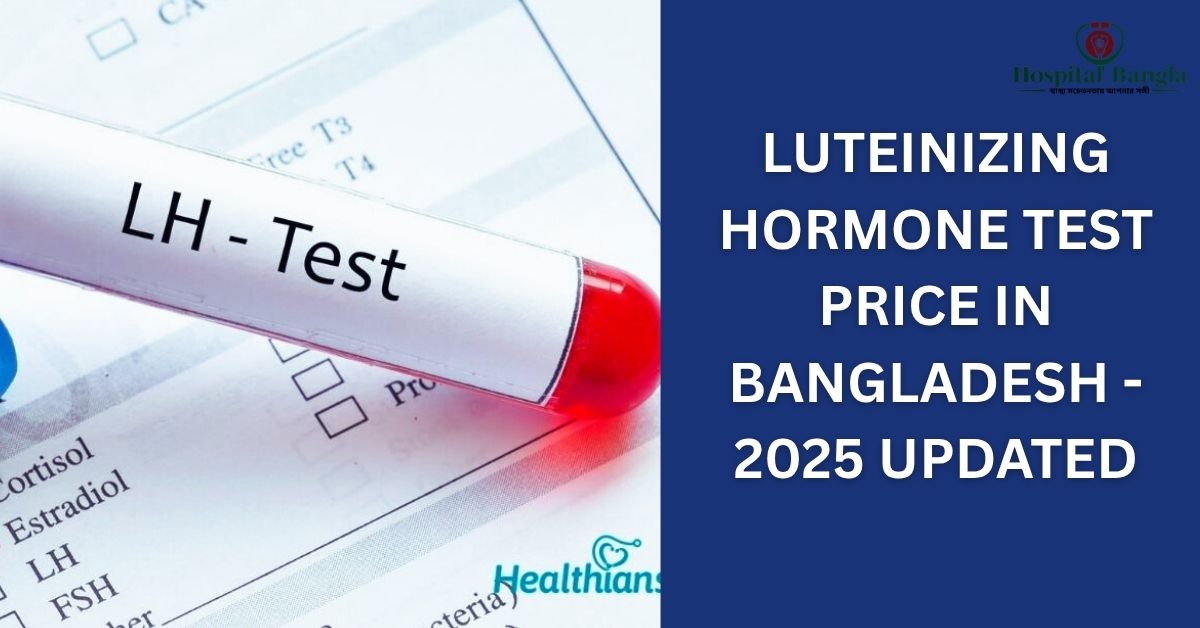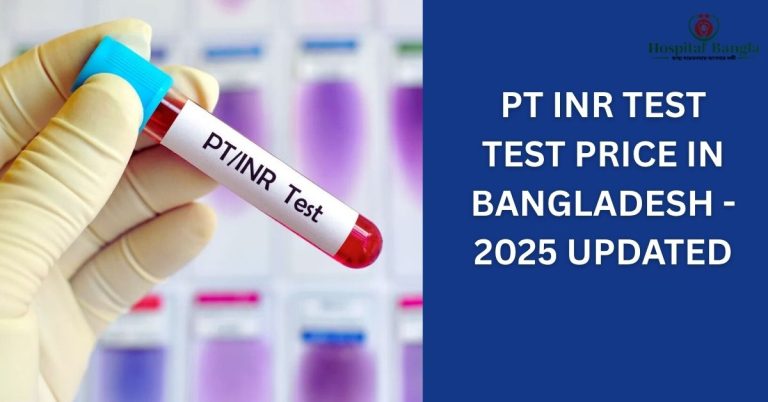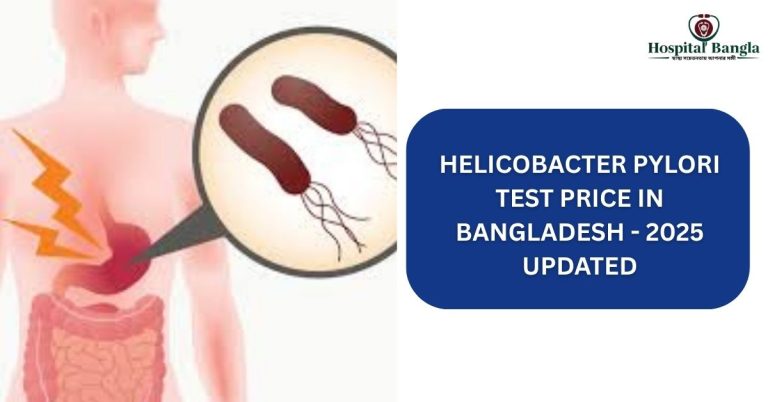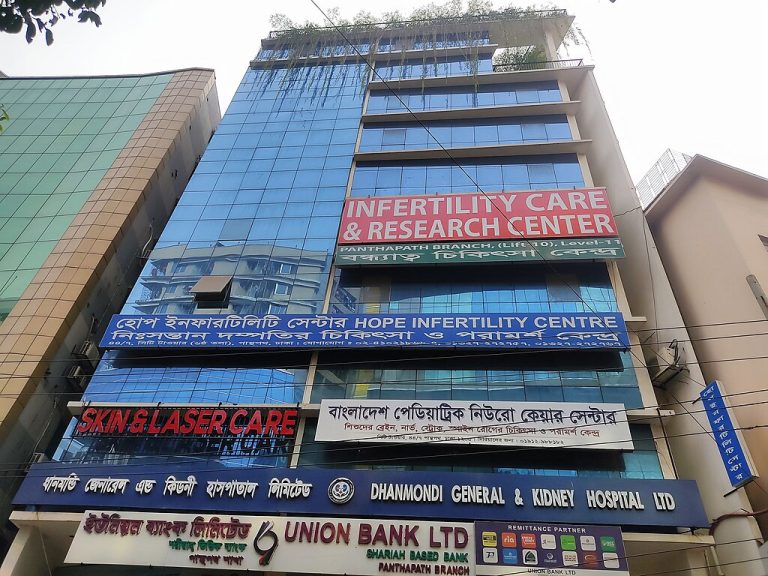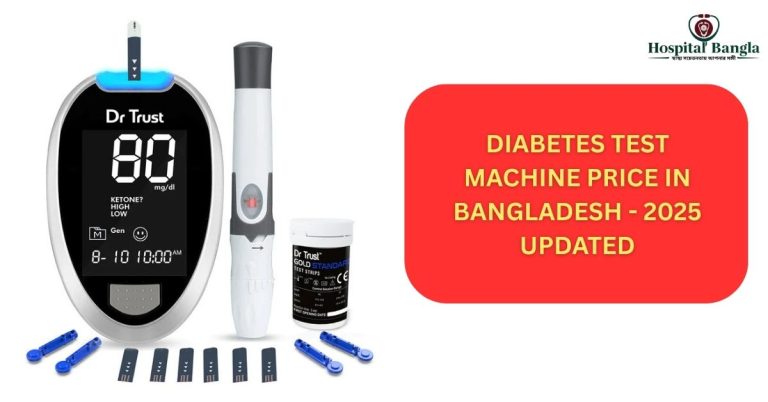LH Test Price in Bangladesh – 2025 Updated
The LH Test, or Luteinizing Hormone Test, is a vital medical procedure that measures the levels of luteinizing hormone (LH) in your blood. This hormone, produced by the pituitary gland, is essential for reproductive health, triggering ovulation in women and testosterone production in men. The test is commonly used to diagnose fertility issues, irregular menstrual cycles, or pituitary gland disorders, making it a critical tool for those seeking answers about their reproductive health. In Bangladesh, the LH Test Price in Bangladesh varies depending on whether you visit a government or private hospital, with private facilities typically charging between 250 BDT and 1400 BDT. This article provides a detailed guide to the LH Test, including its purpose, preparation, and pricing across major hospitals in Bangladesh, ensuring you have all the information needed to make informed healthcare decisions.
What is an LH Test?
The LH Test is a blood test that measures the concentration of luteinizing hormone in the bloodstream. LH is a hormone secreted by the pituitary gland, a small structure located at the base of the brain. It plays a pivotal role in the reproductive system by regulating ovulation in women and testosterone production in men.
Clinical Significance
- Women: The test helps diagnose conditions such as infertility, polycystic ovary syndrome (PCOS), irregular menstrual cycles, or early menopause. It’s also used to monitor ovulation for women trying to conceive.
- Men: It can identify causes of low testosterone, which may lead to fertility issues or reduced sexual function.
- Both Genders: The test can detect pituitary gland disorders, such as tumors or hypogonadism, where the body produces insufficient sex hormones.
Medical Conditions Requiring the Test
- Infertility or difficulty conceiving
- Irregular or absent menstrual periods
- Symptoms of menopause or perimenopause
- Low libido or erectile dysfunction in men
- Suspected pituitary gland abnormalities
Alternative Names
The LH Test may also be known as:
- Luteinizing Hormone Blood Test
- LH Blood Test
- Interstitial Cell-Stimulating Hormone (ICSH) Test (in men)
When is an LH Test Recommended?
The LH Test is recommended when individuals exhibit symptoms or conditions related to reproductive or hormonal health. Here are some common scenarios:
- Fertility Challenges: For couples struggling to conceive, the test can identify hormonal imbalances affecting ovulation or sperm production.
- Irregular Menstrual Cycles: Women with irregular or absent periods may need the test to determine if ovulation is occurring.
- Menopause or Perimenopause: The test helps assess hormonal changes during these stages, typically around ages 45–50.
- Pituitary Disorders: Symptoms like fatigue, low sex drive, or erectile dysfunction may indicate a pituitary issue requiring LH testing.
- Monitoring Treatment: For conditions like PCOS or infertility, doctors use LH levels to evaluate treatment effectiveness.
How Results Are Used
- Diagnosis: Abnormal LH levels can point to conditions like PCOS, hypogonadism, or pituitary tumors.
- Screening: The test identifies potential reproductive issues before they become severe.
- Monitoring: It tracks hormone levels during fertility treatments or hormone therapy.
LH Test Preparation
Preparing for an LH Test is straightforward, but following specific guidelines ensures accurate results:
- Fasting: Fasting is typically not required, but some labs may recommend avoiding food for a few hours. Confirm with your healthcare provider.
- Medications: Inform your doctor about any medications, as drugs like birth control pills or hormone therapies can affect LH levels.
- Sample Collection: The test involves a quick blood draw from a vein in your arm, taking only a few minutes.
- Timing for Women: Since LH levels fluctuate during the menstrual cycle, women may need to schedule the test at a specific time (e.g., mid-cycle for ovulation monitoring). Your doctor will advise on the optimal timing.
- Other Considerations: Avoid recent exposure to radioisotopes (e.g., from nuclear medicine tests), as they may interfere with results.
The procedure is minimally invasive, with slight risks like bruising or discomfort at the injection site.
LH Test Price List in Government Hospitals in Bangladesh
Government hospitals in Bangladesh offer LH Tests at more affordable rates compared to private facilities, but exact prices are often not publicly available online. Below is a table listing major government hospitals where the LH Test is likely available, along with their contact information for price inquiries.
| Hospital Name | Location | LH Test Price (BDT) | Contact Number |
|---|---|---|---|
| Dhaka Medical College Hospital | Dhaka | Not available | +880 2 2234 4821 |
| Bangabandhu Sheikh Mujib Medical University (BSMMU) | Dhaka | Not available | +880 2 5516 5760 |
| Sir Salimullah Medical College Mitford Hospital | Dhaka | Not available | +880 2 2234 4821 |
| Holy Family Red Crescent Medical College Hospital | Dhaka | Not available | +880 2 4103 1875 |
| Shaheed Suhrawardy Medical College Hospital | Dhaka | Not available | +880 2 2233 6601 |
| National Institute of Cardiovascular Diseases | Dhaka | Not available | +880 2 881 1790 |
| National Institute of Neurosciences and Hospital | Dhaka | Not available | +880 2 881 1790 |
LH Test Price List in Private Hospitals in Bangladesh
Private hospitals and diagnostic centers in Bangladesh provide LH Tests with transparent pricing. Below is a table of LH Test prices in major private facilities, based on available data from 2025.
| Hospital/Diagnostic Center | Location | LH Test Price (BDT) | Contact Number |
|---|---|---|---|
| Neuroscience Hospital | Dhaka | 250 | +880 2 983 5000 |
| Ibn Sina Diagnostic & Imaging Center | Dhaka | 750 (discounted), 1000 (original) | +880 2 912 6625 |
| Popular Diagnostic Centre | Dhaka | 1400 | +880 2 966 9480 |
| Square Hospital | Dhaka | 1200 (estimated) | +880 2 814 4400 |
| United Hospital | Dhaka | 1300 (estimated) | +880 2 883 6000 |
| Labaid Diagnostic Centre | Dhaka | 1100 (estimated) | +880 2 5861 0750 |
| Apollo Hospital Dhaka | Dhaka | 1350 (estimated) | +880 2 5503 3550 |
| Evercare Hospital Dhaka | Dhaka | 1250 (estimated) | +880 2 843 1661 |
| Green Life Hospital | Dhaka | 1150 (estimated) | +880 2 961 2345 |
| Delta Hospital | Dhaka | 1000 (estimated) | +880 2 902 9151 |
Understanding LH Test Results
Interpreting LH Test results requires understanding normal ranges, which vary by age, sex, and menstrual cycle phase. Below are general guidelines:
- Normal Ranges:
- Men: 1.5–9.3 mIU/mL
- Women (Follicular Phase): 1.0–18.0 mIU/mL
- Women (Ovulatory Peak): 20–80 mIU/mL
- Women (Luteal Phase): 0.5–16.0 mIU/mL
- Postmenopausal Women: 15.9–54.0 mIU/mL
- Abnormal Results:
- High LH Levels: May indicate PCOS, ovarian failure, or pituitary disorders.
- Low LH Levels: Could suggest hypogonadism, delayed puberty, or pituitary gland dysfunction.
- Factors Affecting Results:
- Medications (e.g., hormonal therapies, contraceptives)
- Timing of the test (especially for women during the menstrual cycle)
- Age, stress, or underlying health conditions
- When to Consult a Doctor:
- If results fall outside the normal range
- If you experience symptoms like irregular periods, infertility, or low sex drive
- To discuss further testing or treatment options
Always consult a healthcare provider to interpret your results in the context of your overall health.
Frequently Asked Questions
Is the LH Test accurate?
The LH Test is highly reliable for measuring luteinizing hormone levels when performed in a certified laboratory. However, results should be interpreted by a doctor considering other health factors.
How long does it take to get LH Test results?
Results are typically available within 24–48 hours, depending on the hospital or diagnostic center’s processing time.
Is the LH Test covered by insurance?
Insurance coverage varies by provider. Some plans may cover the test if it’s medically necessary. Contact your insurer to confirm.
How often should the LH Test be done?
The frequency depends on your condition and doctor’s advice. It may be a one-time test for diagnosis or repeated for monitoring treatment.
What is the difference between LH and FSH tests?
LH triggers ovulation in women and testosterone production in men, while FSH (Follicle-Stimulating Hormone) stimulates ovarian follicle growth in women and sperm production in men. Both are often tested together for a comprehensive reproductive health assessment.
Can the LH Test be done at home?
At-home ovulation kits measure LH in urine, but clinical LH Tests require a blood sample and must be conducted in a medical facility for accurate results.
Are there risks associated with the LH Test?
The test is safe, with minimal risks like slight bruising or discomfort at the blood draw site.
Conclusion
The LH Test is a critical diagnostic tool for evaluating reproductive health and identifying hormonal imbalances. In Bangladesh, the test is widely accessible in both government and private hospitals, with private facilities charging between 250 BDT and 1400 BDT, as seen in centers like Neuroscience Hospital and Popular Diagnostic Centre. Government hospitals, such as Dhaka Medical College Hospital, likely offer more affordable options, though exact prices require direct inquiry. Comparing prices across facilities can help you find cost-effective options without compromising quality.

